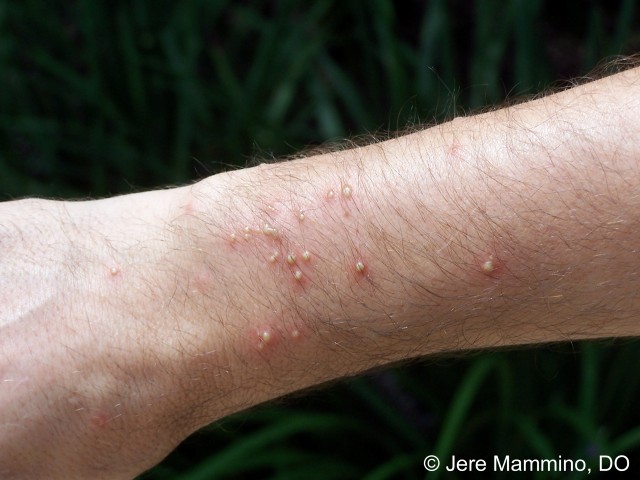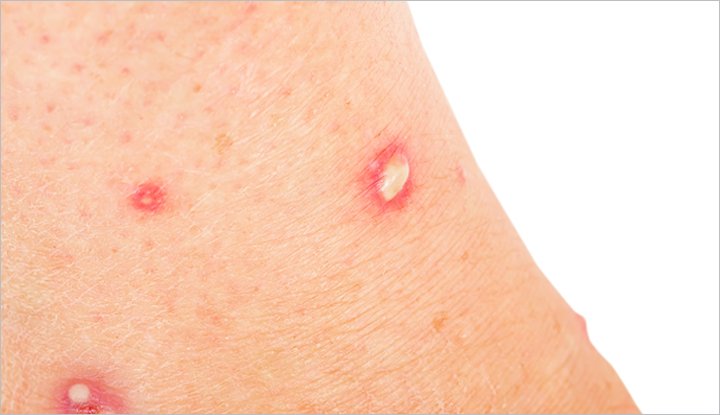To help ant bites on a toddler, apply hydrocortisone cream and use cold compresses to reduce itchiness, pain, and swelling.
Recognizing Ant Bites On Toddler
It’s important to be able to identify ant bites on your toddler to provide the necessary care and treatment. Ant bites can cause discomfort and irritation for your little one, so recognizing the signs early is essential. Here are some key points to help you identify ant bites:
Identifying Ant Bites
- Ant bites often appear as small red bumps on the skin.
- You may notice multiple bites clustered together in one area.
- Ant bites can be itchy and may cause mild swelling.
Common Symptoms
- Itching and redness at the site of the bite.
- Swelling and sensitivity to touch.
- Possible development of blisters or pustules.
When you suspect your toddler has been bitten by ants, it’s essential to take action promptly to alleviate their discomfort. Properly identifying ant bites and understanding the common symptoms can help you provide the necessary care to your little one.
:max_bytes(150000):strip_icc()/GettyImages-1148547289-0dbd0026029b4fcb9db59290d0fdfdd8.jpg)
Credit: www.verywellhealth.com
Immediate Care For Ant Bites
When it comes to immediate care for ant bites on toddlers, it’s important to wash the affected area with soap and water to prevent infection. Applying ice can help reduce swelling and taking an antihistamine can alleviate the itching. If you notice any severe allergic reactions, seek medical care promptly.
Cleaning The Bite Area
After discovering an ant bite on your toddler, the first step is to clean the bite area to prevent any potential infections. Start by gently washing the affected area with antibacterial soap and lukewarm water. This will remove any dirt or bacteria that may be on the skin’s surface.
Once the bite area is clean, pat it dry with a clean towel. Avoid rubbing the area, as this may cause further irritation. Keeping the bite area clean and dry will aid in the healing process and reduce the risk of infection.
Reducing Itching And Swelling
Ant bites can be itchy and may cause swelling around the bite area. To reduce itching and swelling, you can try a few simple remedies:
- Apply a cold compress to the bite area. Wrap some ice cubes in a clean towel or use a cold pack and place it on the bite for 10-15 minutes. The cold temperature will help numb the area, reduce swelling, and provide temporary relief from the itching.
- You can also try applying a small amount of hydrocortisone cream on the bite. Hydrocortisone is a topical cream that helps reduce itching and inflammation. Apply a thin layer of the cream to the affected area, following the instructions on the packaging.
- Another natural remedy to consider is a mixture of lemon juice and baking soda. Lemon juice has antibacterial properties and can help soothe the itchiness, while baking soda can help reduce inflammation. Mix a small amount of lemon juice and baking soda together to form a paste, then apply it to the ant bite and leave it on for a few minutes before rinsing off with water.
Remember to closely monitor your toddler for any signs of an allergic reaction or worsening symptoms. If the bite area becomes increasingly red, swollen, or if your toddler develops difficulty breathing or a severe allergic reaction, seek immediate medical attention.
When To Seek Medical Help
If your toddler has ant bites, wash the affected area with antibacterial soap. Apply ice to reduce swelling and use hydrocortisone cream for itching relief. Seek immediate medical help if the bite is near the mouth or if your child has severe allergies.
Severe Allergic Reactions
If your toddler experiences a severe allergic reaction to an ant bite, it is crucial to seek immediate medical help. Severe allergic reactions, also known as anaphylaxis, can be life-threatening and require urgent medical attention. Look out for symptoms such as difficulty breathing, swelling of the face, lips, or throat, dizziness, rapid heartbeat, and confusion. In case of a severe allergic reaction, call emergency services or take your toddler to the nearest emergency room without delay. Remember, early medical intervention is vital in such situations.Signs Of Infection
Ant bites can sometimes lead to infection if not treated properly. It’s essential to keep a close eye on the bite area and be alert for any signs of infection. If you notice increasing redness, warmth, swelling, or pus around the bite, it may be a sign of infection. Other symptoms of infection can include fever, pain, tenderness, and a spreading rash. In case of infection, it is advisable to seek medical help to prevent the infection from worsening. Your child’s healthcare provider can assess the bite and prescribe appropriate treatment, such as antibiotics, if necessary.Remember, while minor ant bites can often be managed at home with basic first aid measures, it is crucial to know when to seek medical help. This is particularly important if your toddler experiences a severe allergic reaction or if you suspect an infection. Don’t hesitate to contact your child’s healthcare provider or seek emergency medical care when necessary. Your child’s safety and well-being should always be the top priority.Prevention Of Ant Bites
Protecting your toddler from painful ant bites is crucial for a happy and itch-free outdoor experience. Here are some effective ways to prevent ant bites:
Avoiding Ant Habitats
- Keep outdoor play areas clean and free of food crumbs and spills.
- Seal cracks and crevices in the home to prevent ants from entering.
- Avoid leaving sugary treats or open food containers accessible to ants.
Using Insect Repellent
- Apply child-safe insect repellent on exposed skin before outdoor activities.
- Choose repellents containing DEET or picaridin for effective protection.
By following these prevention techniques, you can create a safe environment for your toddler and minimize the risk of ant bites.
Treatment Of Ant Bites
When it comes to treating ant bites on a toddler, it is important to act swiftly and effectively to alleviate the discomfort caused by these insect bites. The treatment of ant bites involves various methods to reduce itching, swelling, and pain. Here are the different approaches to treating ant bites:
Oral Medications
Oral medications such as antihistamines like Benadryl can help alleviate itching and reduce allergic reactions caused by ant bites. It is important to consult a pediatrician before administering any oral medication to a toddler.
Topical Treatments
Hydrocortisone cream is an effective topical treatment for ant bites, which helps to reduce itching and inflammation. Applying the cream to the affected area twice a day can provide relief. Additionally, cold compresses can be used to reduce pain and swelling caused by ant bites.

Credit: www.aocd.org

Credit: keepkidshealthy.com
Frequently Asked Questions Of How To Help Ant Bites On Toddler
What Is The Fastest Way To Heal Ant Bites?
To heal ant bites quickly, take an oral antihistamine like Benadryl® to reduce itchiness. Apply hydrocortisone cream twice a day to the affected skin. Use cold compresses to reduce pain and swelling. Wash the bite area with soap and water to prevent infection.
When Should I Be Concerned About Ant Bites On My Toddler?
If your toddler has ant bites, be concerned if the bite is near or inside the mouth, if your toddler has a severe allergy to insect bites, or if injectable epinephrine was used. Seek medical care immediately in these cases.
When Should I Be Concerned About A Bug Bite On My Toddler?
If a bug bite is near the mouth, or your child has severe allergies, seek medical care immediately.
How Long Do Ant Bite Symptoms Last?
Ant bite symptoms typically last for a few hours to a few days. Applying cold compresses and hydrocortisone cream can help alleviate discomfort. If symptoms persist or worsen, it’s advisable to seek medical attention.
Conclusion
Ant bites on toddlers can be distressing, but with proper care, they can heal quickly. Using cold compresses and applying antihistamine cream can ease itching and swelling. Remember to seek medical help if you notice any severe reactions. With prompt treatment, your little one can recover comfortably.

I’m MD Tanvir, and I bring years of expertise gained from working closely with pest control companies to the forefront. My journey in the industry has inspired me to launch Bug Battler, a platform aimed at equipping people with the know-how to combat pests autonomously. Through Bug Battler, I aim to empower individuals with practical insights to tackle pest infestations effectively.

